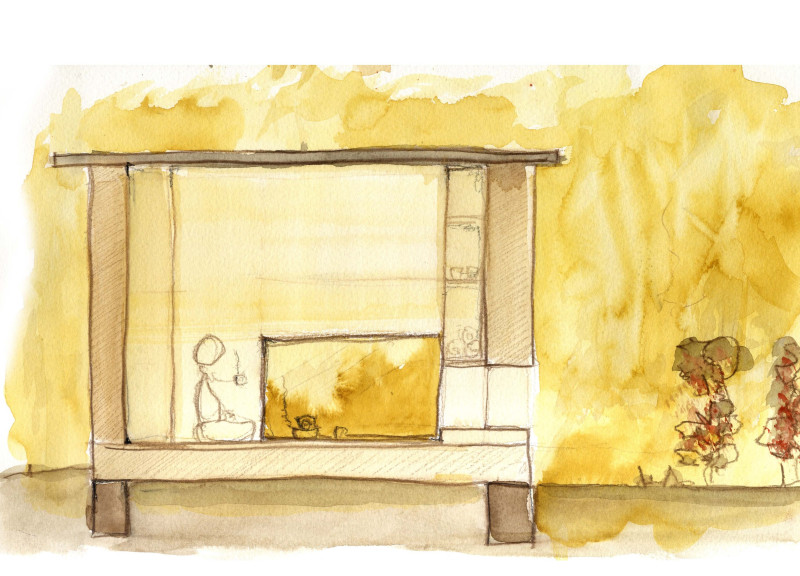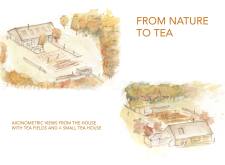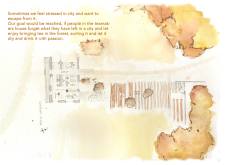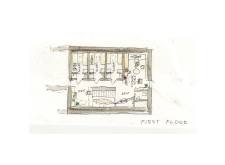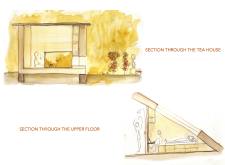5 key facts about this project
The design presents a residential house integrated with tea fields and a small tea house, located within a peaceful natural landscape. This setting allows people to cultivate and enjoy tea, providing an escape from the demands of city life. The concept emphasizes the importance of connecting with nature while celebrating the cultural significance of tea production and enjoyment.
Design Concept and Functionality
The layout of the house is organized to encourage both group interactions and private moments. A workshop serves as the center for tea production, creating an environment for activities from harvesting to preparation. This space reinforces the bond between people and their agricultural lifestyle, promoting an engaging approach to tea-making.
Spatial Arrangement and Flow
Next to the workshop, a kitchen is designed for easy movement and conversation during tea preparation. This closeness ensures a smooth transition from making to enjoying tea. The adjacent eating area allows for shared dining experiences, enhancing social connections among residents. This arrangement provides spaces that balance togetherness and relaxation.
Integration with Nature
The garden plays a key role in the overall design. It is not just decorative; it is essential for the tea-making process. The garden encourages direct participation in cultivation, highlighting a commitment to sustainable practices. It is easily accessible from the kitchen, ensuring fresh ingredients are always available.
Upper Floor Spaces
On the upper floor, common spaces and rest areas are designed to offer quiet moments for reflection. These areas are intentionally separated from the busier spaces of the house, creating personal retreats where inhabitants can enjoy the views of the surrounding landscape. This layout contributes to a calming atmosphere, enhancing the daily experiences of the residents.
The design connects themes of tea culture, community, and nature in a meaningful way. Large windows allow sunlight to pour in, bathing the interior in warmth and creating an inviting environment that mirrors the natural processes involved in tea-making.


